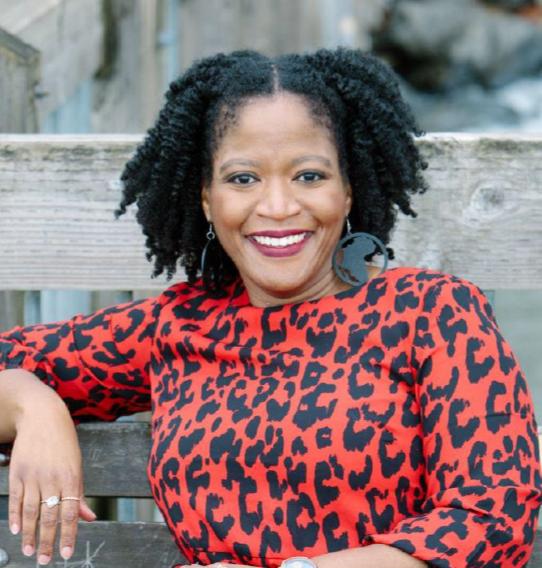Watch: Is There a Solution to Addressing “Karens”?
TheGrio’s Natasha S. Alford talks to author Kimberlee Yolanda Williams about addressing "Karens" and race relations in the US.
With stories like the white woman who argued with a young Black boy over a Citi bike and more recently, the shooting of Ajike “AJ” Owens due to a “heated argument” between Owens and her white neighbor, it seems as though “Karens” are out of control. According to dictionary.com, the term “Karen” is defined as an obnoxious, angry, entitled, and often racist middle-aged white woman who uses her privilege to get her way or police other people’s behaviors.
TheGrio’s Natasha S. Alford talks to Kimberlee Yolanda Williams, the author of “Dear White Woman, Please Come Home: Hand Me Your Bias, and I’ll Show You Our Connection”, about if there is a solution to addressing “Karens” and the race relations currently going on in the U.S.
The following is a transcript of the conversation.
Williams on the solution to addressing “Karens”.

Natasha S. Alford: Welcome back. We’re talking with Kimberlee Yolanda Williams. She’s the author of “Dear White Woman, Please Come Home: Hand Me Your Bias, and I’ll Show You Our Connection.” So, Kimberly, this has been a great conversation. We are covering the intention of you writing a book like this, but also the need for it.
What do you think about all of these Karen stories, so to speak, that we see on social media and in the news where a white woman is featured either calling the police on a person of color, you know, asserting some sort of like authority over them when they don’t have it. What do you think is the core of that issue? And does your book perhaps provide a solution to address that?
Kimberlee Yolanda Williams: Yeah. Wow. That’s a great question. And I get it a lot on the road. And so I would say like we and this is something that I’m going to touch on really quickly. It’s something that we don’t even realize that we show up as our historical selves present day. So I think about the movie Get Out, and when they would snap the picture, how like the person’s nose would start bleeding and right? And it was like this moment in time going back in history.
And so when you…It has happened to me as recently as last year, two weeks ago, where white women are showing up in their historical roles of policing our bodies, policing our existence, our presence, our tone of voice, our hair, etc… And they don’t even realize that they’re showing up robotically in their historical roles. And so, when I say that to them and I say, what makes you feel like you are responsible for whether or not I park in front of a fire hydrant? That was my most recent Karen story for my own life.
And we have amazing conversations where they don’t even realize that they’re robotically going through this. And when they’re called on, it is like they come unplugged. Right? And then you’re and then you’re giving them another opportunity to show up. But because you’re now shaming them by telling them they’ve done something wrong, they come unglued and they double down. And it’s because that resilience or that muscle is not built up to deal with conversations. In fact, they’re programmed the exact opposite, right?
We don’t have these conversations. We’re not allowed to. And if we do, we may be cut off from our family for years and years and years. So well this is one of my favorite topics on the road like here and I and I help people develop a plan. You’re going to do something like this again and you’re going to be called on it.
The attack on racial diversity from book bans in Florida.
Alford: Well, it’s interesting that you say there is a bit of falling apart or resistance when people are called out, because we’re seeing that on a macro level with the policies that are being proposed by people like a Governor Ron DeSantis, attacking the guy, attacking any sort of conversation about race and diversity and inclusion. Literally just cutting it at the root, trying to take out books from classrooms that could be educational.
I imagine your book is a book that would be put on the banned book list. What do you think about this moment that we’re in? Some people have called it a white lash, essentially, to all of this focus on diversity and racial justice. Tell us what you think about this moment we’re in right now.
Williams: it’s a moment of desperation. It is a moment of desperation because the approach that has always worked in this country and continues to work is divide and conquer. And not just this country, but the world right? I’ve never heard of any country that hasn’t been in some way colonized and conquered by another group of people. And so when we talk about in this country, people coming together, right?
And we got to see that on a global scale when George Floyd was murdered. But when people come together, the gimmicks and the tricks and the things that have been used in the past to divide us no longer work…they have to up the ante. And it’s like, okay, wait a minute…folks are coming together and people are getting the truth and they’re getting the story right and too many people are woke, right? So, okay, how can we up the ante?
And if you think about that, if you think about these laws being written, we’re not going to cover African-American history…right? We’re not going to talk about this. We’re not going to talk about that. But we will cover Asian-American history. And why is that? Because here is a more formal and a more supreme way of dividing and conquering.
Why do our interracial friendships disappear as we get older?
Alford: Kimberly, I hate to put this pressure on you, but in just a few seconds, could you explain why is it that so many of us start out with many friends of different races? Right. I remember being in interracial friendships as a child, and then the older you get, those friendships fall off…things change. What’s at the core of that?
Williams: Children come to the world or come to the earth with a blank slate, and so they are the ones that will, in the middle of a doctor’s office in the waiting room, say, you know, I have to use the bathroom, but they’re using the words that we’re embarrassing here in public, right?
Children have zero filter. I remember being asked by a White child, why are your lips brown? Right. They have zero filter, zero filter. But as we shove programming into them and we start convincing them, right, that this is what’s right, this is what’s wrong, this is what’s superior, this is what isn’t. And so as you get older, you start to separate because we’re starting to learn the societal rules and hierarchies.
Alford: Well, the children certainly see everything that we say and we do. And they see when there is not alignment between what we say is the right thing and then actually how we live.
Williams: Thank you so much for being here today, tackling a really tough conversation with me in this segment. They’re not easy conversations to have, but they’re very important again. Her book is “Dear White Woman, Please Come Home: Hand Me Your Bias, and I’ll Show You Our Connection.”
Check out the full clip above and tune into “theGrio Weekly” at 11 a.m. ET every Sunday on theGrio cable channel.
TheGrio is FREE on your TV via Apple TV, Amazon Fire, Roku and Android TV. Also, please download theGrio mobile apps today!

